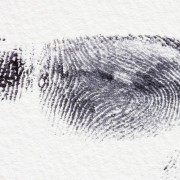NJ Supreme Court hears PCR Claim on Child Sexual Abuse
In the State of New Jersey, a sex offense conviction has many life-altering effects. For instance, a sex crimes conviction can lead to a sentence including Megan’s Law and/or Parole Supervision for Life (PSL). Many people find living on Megan’s Law and parole supervision very difficult because it may affect where they may work and live. There are options to obtain relief. Some registrants are able to petition to be removed from the Megan’s Law registry and Community Supervision for Life (CSL). Other people seek relief by way of PCR (Post-Conviction Relief).
An offender may petition for PCR only if he or she meets the criteria set forth by the NJ Rules of Court. As a result, Maynard Law Office, LLC always recommends to individuals to seek a thorough analysis from a competent lawyer to determine whether they have grounds for a PCR petition.
PCR is available to people with sex offense criminal history
PCR matters are highly technical. In a case that is still under review by the New Jersey Supreme Court, the court reviews the issue of whether evidence of Child Sexual Abuse Accommodation Syndrome (CSAAS) is scientifically reliable. Can a NJ criminal court rely on this evidence in a criminal case? The case in review, State v. J.L.G. ___ N.J. ___ (March 17, 2017), addresses these questions.
This matter was first heard before the Hudson County Superior Court. The defendant, J.L.G., moved to exclude expert testimony on CSAAS at his trial. However, the motion was denied. A jury convicted the J.L.G. on charges of sex offenses. J.L.G. appealed, and the NJ Appellate Division denied his appeal. The NJ Supreme Court accepted the case, and sent the case back to the trial court for an evidentiary hearing. However, the Supreme Court retained jurisdiction.
At the trial court, the State offered two experts to support the use of CSAAS in child sex abuse matters. In turn, the defendant provided two experts who disagreed with the use of CSAAS. In conclusion, the Hudson County judge found the 1) the State “failed to provide sufficient evidence to prove a general acceptance of CSAAS among clinical and research psychologists, and 2) thus concludes that CSAAS does not meet the Frye standards for admissibility and should no longer be used in child sexual abuse cases.”
However, if the Supreme Court adopts the Hudson County trial court’s findings, many more offenders may have the ability to challenge their convictions.
Sex Offenders on Megan’s Law can challenge their conviction
If you live in the State of New Jersey or have a sex offense conviction from NJ, you may want to consult an experienced attorney. A lawyer with a focused practice in post-conviction matter can tell you whether you are eligible for PCR. As in the example above, sex offenders on Megan’s Law have the ability to challenge sex offense convictions, and obtain relief.










Leave a Reply
Want to join the discussion?Feel free to contribute!